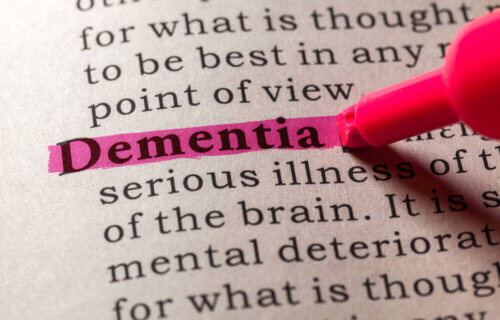SAN FRANCISCO – Dementia is a common ailment in older adults, with more than 10 million new cases each year. Who actually winds up developing dementia may come down to one’s ability to smell. A new study reveals that seniors with better sensory perception — especially a strong sense of smell — are half as likely to develop the condition.
Dementia is not a single disease, but rather a group of conditions causing cognitive decline. Symptoms include impairments in memory, thinking, and social skills. The study, led by scientists at the University of California, San Francisco, tracks nearly 1,800 seniors, ages 70 to 79, over 10 years. At the start of the research, all participants were dementia-free. By the end of the study, 18 percent had developed the condition.
Previous studies suggest a link between dementia and individual senses like vision, hearing, and touch. The UCSF researchers are examining whether individuals who develop dementia have impairments in multiple sensory areas.
Sniffing out risks for dementia
To find out, researchers tested an individual’s senses in the third and fifth years of the study. They tested hearing in patients without hearing aids, along with vision, touch, and smell. In the smell tests, participants were asked to identify smells including roses, lemons, onions, paint thinner, and turpentine. The researchers then ranked seniors’ sensory abilities as good, middle, or poor.
The results reveal that 27 percent of seniors with poor sensory levels have dementia. Only 19 percent in the middle range and 12 percent in the good range also have the condition.
“We found that with deteriorating multisensory functioning, the risk of cognitive decline increased in a dose-response manner,” says senior author Kristine Yaffe in a university statement. “Even mild or moderate sensory impairments across multiple domains were associated with an increased risk of dementia, indicating that people with poor multisensory function are a high-risk population that could be targeted prior to dementia onset for intervention.”
“Sensory impairments could be due to underlying neurodegeneration or the same disease processes as those affecting cognition, such as stroke,” researcher Willa Brenowitz adds. “Alternatively, sensory impairments, particularly hearing and vision, may accelerate cognitive decline, either directly impacting cognition or indirectly by increasing social isolation, poor mobility and adverse mental health.”
Early warning signs in the nose?
When looking at individual senses, researchers say that the sense of smell has a strong connection to dementia risk. Seniors who demonstrate a 10-percent decline in smell are 19 percent more likely to develop dementia. In contrast, a similar decline in hearing or vision only creates a one to third percent increase in dementia risk.
“The olfactory bulb, which is critical for smell, is affected fairly early on in the course of the disease,” Brenowitz explains. “It’s thought that smell may be a preclinical indicator of dementia, while hearing and vision may have more of a role in promoting dementia.”
Study authors reveal seniors with good sensory function are also healthier on average than those with poor senses. They are also more likely to have a high school degree, less likely to have diabetes, and marginally less likely to have cardiovascular disease, high blood pressure, or signs of stroke. These findings raise the possibility that lifestyle habits and overall health may point to both sensory function and dementia risk.
The study is published in Alzheimer’s and Dementia: The Journal of the Alzheimer’s Association.
Like studies? Follow us on Facebook!
